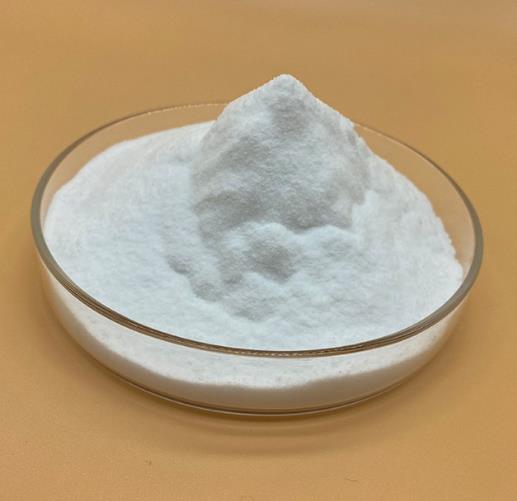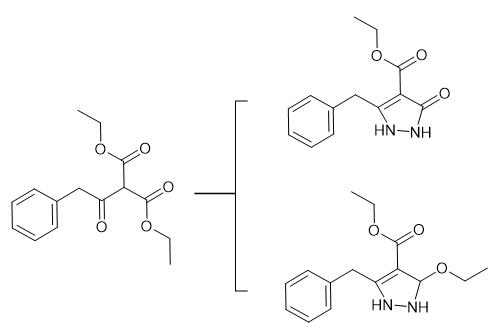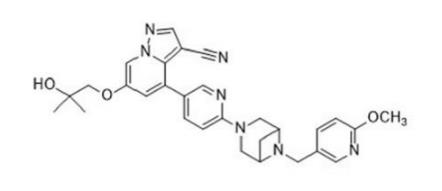Fenspiride: Mechanism, Bioactivity and Chemical and toxicological studies
General description
Fenspiride is an antagonist of 5-hydroxytryptamine, whose effect on bronchial smooth muscle expansion is between isoproterenol and theophylline. It also has the effect of unobtrusion-free respiratory tract and air resistance elimination in the lungs. It has the effect of antitussive, antipyretic, analgesic and anti-inflammatory, and the antipyretic and analgesic effect is better than aminopyrine and the anti-inflammatory effect is stronger than bute.
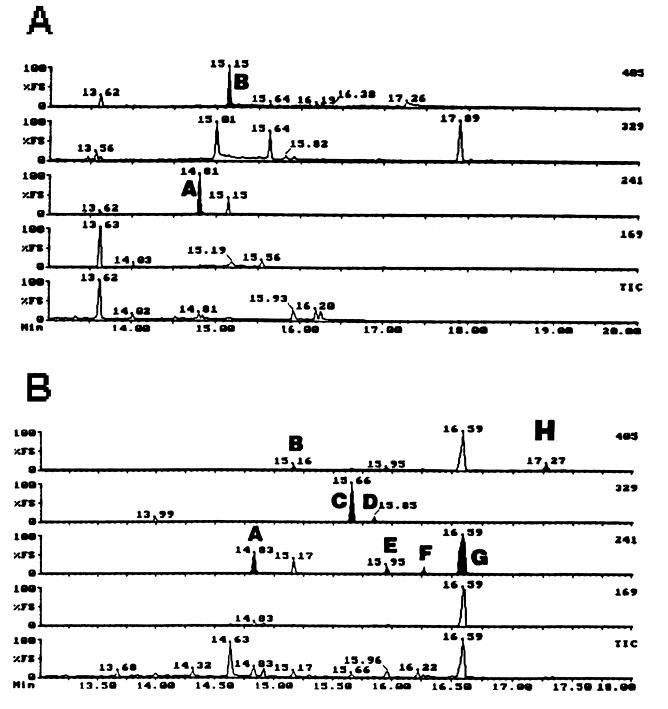
Fig. 1. The total ion chromatogram (TIC) and mass chromatograms for the ions m/z 169, m/z 241, m/z 329 and m/z 405 obtained from the TMS-derivatised isolates of (A) unhydrolysed and (B) enzyme hydrolysed post-fenspiride administration urine sample.
Mechanism
Fenspiride inhibits the calcium signal evoked by the inflammatory peptide formyl-Met-Leu-Phe (fMLP) in peritoneal macrophages, but at concentrations (approximate to 1 mM) far above the therapeutic range (approximate to 1 mu M) Here, in rat alveolar macrophages, high fenspiride concentrations (1 mM) were required to inhibit the calcium signals evoked by the calcium agonist Bay K8644 or by ionomycin. Moreover, fenspiride (1 mM) was a poor inhibitor of the cell membrane depolarization induced by gramicidine D. By contrast, fenspiride blocked Na+-H+ antiport activation by (i) fMLP with an IC50 = 3.1 +/- 1.9 nM and (ii) PMA (phorbol 12-myristate 13-acetate) with an IC50 = 9.2 +/- 3.1 nM. Finally, protein kinase C (PKC) activity of macrophage homogenate was not significantly modified by 10 or 100 mu M fenspiride (at 100 mu M: 2.57 +/- 1.60 vs. 2.80 +/- 1.71 pmol/10(6) cells/min). In conclusion, fenspiride inhibits fMLP- and PMA-induced pH signals in rat alveolar macrophages, probably by acting distally on the PKC transduction signal. This pH antagonistic action may be relevant for the antiinflammatory mechanism of fenspiride and requires further investigation [1].
Bioactivity
Effectiveness of fenspiride in patients with chronic obstructive bronchitis
Patients with chronic obstructive pulmonary disease of moderate severity were investigated for two months for assessment of fenspiride activity. Examination of the patients (age 42.6 +/- 5.3) took place before and after fenspiride therapy. In comparison to the control group, fenspiride patients showed improvement of external respiration function: FEV 1, FVC, FEF 50-75, PEF increased. Dienic conjugates, malonic dialdehyde levels decreased, alpha-tocopherol in platelet membranes rose, functional activity of platelets fell. Side effects were rare and not serious. It is concluded that fenspiride has an antiinflammatory effect, reduces bronchoconstriction and depresses platelet aggregation, is well tolerated. Fenspiride is an effective drug for the treatment of moderate chronic obstructive bronchitis [2].
Pathophysiology of chronic obstructive pulmonary disease (COPD) Chronic inflammation of the upper airways, pulmonary parenchyma and pulmonary vasculature is the characteristic feature of COPD. Two mechanisms besides inflammation are also involved: oxidative stress and imbalance between proteinases and antiproteinases. Cellular infiltration of the upper airways involved neutrophils, macrophages, T lymphocytes and eosinophils. Inflammatory mediators appear to play a crucial role in the interaction between inflammation and obstruction. Properties of fenspiride: A nonsteroidal drug, fenspiride, exhibits interesting properties documented in vitro: anti-bronchoconstriction activity, anti-secretory activity, and anti-inflammatory activity (reduction in the activity of phospholipase A2 and release of proinflammatory leucotriens). Two French clinical trials have studied the efficacy of fenspiride in patients with acute exarcerbation or stable COPD and have demonstrated an improvement in the group treated with fenspiride compared with the placebo group [3].
Antitussive and antibronchoconstrictive effects of Fenspiride in guinea-pigs
Fenspiride is a nonsteriodal anti-inflammatory agent, which we have previously shown to have an in vivo antibronchoconstrictor action in guinea pigs. We have currently studied this action using the constrictors Substance P, neurokinin A, citric acid and capsaicin in anaesthetized guinea-pigs, Fenspiride has also been reported to produce a subjective improvement in cough in patients, We have used a conscious guinea-pig model of cough as a more definitive method to study the effect of fenspiride on capsaicin- and citric acid-induced cough, Aerosolized fenspiride (1 mg.mL(-1)) caused a 58% reversal of capsaicin-induced bronchoconstriction; and iv. fenspiride (1 mg.kg(-1)) a 45% reversal of citric acid induced bronchoconstriction. Substance P- and neurokinin A-induced bronchoconstriction were unaffected by 1 mg.kg(-1) iv. fenspiride. Aerosolized fenspiride (1, 3 and 10 mg.mL(-1)) administered for 4 min reduced citric acid (300 mM) induced cough, but 0.1 mg.mL(-1) was without effect. Pretreatment with aerosolized fenspiride (10 mg.mL(-1)) caused a shift in the citric acid dose response curve to the right. For citric acid-induced cough, the duration of action of aerosolized fenspiride (10 mg.mL(-1)) was found to be 5 and 15 min post-treatment. Aerosolized capsaicin (30 mu M) induced cough was also reduced by 3 and 10 mg.mL(-1) aerosolized fenspiride, but no significant effect was found with 1 mg.mL(-1). We conclude that aerosolized fenspiride reduces capsaicin- and citric acid-induced bronchoconstriction as well as induced cough in guinea-pigs in vivo, Whether a pathway common to both cough and bronchoconstriction is the site of action of fenspiride remains to be established. We postulate that fenspiride, acting as an antitussive and antibronchoconstrictor agent, would be beneficial in the clinical situation for those patients with hyperresponsive airways [4].
Protective Effect of Fenspiride on the Bronchi in Rats with Chronic Obstructive Pulmonary Disease
We studied the effect of a non-steroidal anti-inflammatory drug fenspiride on contractive activity of bronchial smooth muscles on the model of chronic obstructive pulmonary disease of rats induced by 60-day exposure to nitrogen dioxide. The administration of fenspiride during the acute stage of the disease (day 15) abolished the constricting effect of the pollutant on the bronchial smooth muscles. Dilatation effect of fenspiride in a low dose (0.15 mg/kg) was mediated by its interaction with nerve endings of bronchial capsaicin-sensitive nerve C-fibers. The interaction of drug with receptors of C-fibers prevented neurogenic inflammation, which was confirmed by the absence of structural changes in the lungs typical of this pathology. The broncholytic effect of fenspiride in a high dose (15 mg/kg) was mediated by not only afferent pathways, but also its direct relaxing action on smooth muscle cells. The observed anti-inflammatory and bronchodilatation effect of fenspiride in very low doses can be used for prevention of chronic obstructive pulmonary disease in risk-group patients contacting with aggressive environmental factors [5].
Effect on neurogenic mucus secretion in ferret trachea in vitro
Neural mechanisms contribute to control of mucus s
You may like
Related articles And Qustion
See also
Lastest Price from fenspiride manufacturers

US $50.00/kg2023-09-07
- CAS:
- 5053-06-5
- Min. Order:
- 1kg
- Purity:
- 99.9%
- Supply Ability:
- 10000MT
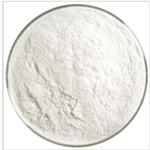
US $25.00/KG2021-11-25
- CAS:
- 5053-06-5
- Min. Order:
- 100g
- Purity:
- 99.99%
- Supply Ability:
- 5ton/Month

